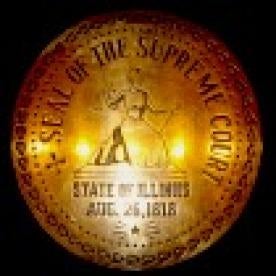In two recent criminal cases, People v. Melongo, 2014 IL 114852, and People v. Clark, 2014 IL 115776, the Illinois Supreme Court reviewed the constitutionality of the Illinois Eavesdropping Act. See Illinois Eavesdropping Act, 720 ILCS 5/14 (West 2008). It declared the Act to be unconstitutional on its face and as applied. The Illinois Eavesdropping statute is considered to be one of the most stringent in the country. The statute made it unlawful to record any part of a conversation without the consent of all parties to the conversation. The statute also made it a criminal offense to divulge information obtained through the use of an eavesdropping device.
In Melongo, the defendant recorded three conversations with the assistant administrator of the Cook County Court Reporters Office. Without her consent, the defendant then posted the recordings and transcripts of the conversations on her website. She was subsequently charged with three counts of eavesdropping and three counts of using or divulging information obtained through the use of an eavesdropping device.
In Clark, a criminal defendant used an eavesdropping device to record a conversation between himself, an attorney, and the judge in a court proceeding. According to the defendant, there was no court reporter present and no recording device to record the proceedings. The Illinois Supreme Court concluded that the eavesdropping statute burdened freedom of speech substantially more than is necessary to serve the legitimate state interest of protecting conversational privacy. Thus, the statute was found to be unconstitutional.
The court also held that a defendant cannot be constitutionally prosecuted for divulging the contents of a conversation he recorded. The purpose of the eavesdropping statute is to protect individuals from the monitoring of their conversations by use of eavesdropping devices without their consent. The Illinois Supreme Court concluded that the interest in protecting conversational privacy was served by the eavesdropping statute. However, the statute did not stop there as it criminalized the audio recording of conversations that cannot be deemed private. For example, an argument on the street, public debate in a park, public interactions of police officers with citizens, and conversations loud enough to be overheard by others were also covered by the statute. While not implicating privacy interests, recording of these conversations would have been a felony under the statute. Consequently, the Illinois Supreme Court concluded that Section (a)(1)(A) of the Eavesdropping statue was unconstitutional since it was overbroad. In the employment context, recordings made by employees without the knowledge or consent of co-workers or the employer will likely be admissible evidence in discrimination and other employment related claims.



 i
i

